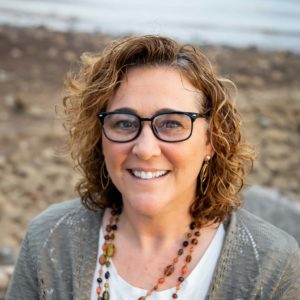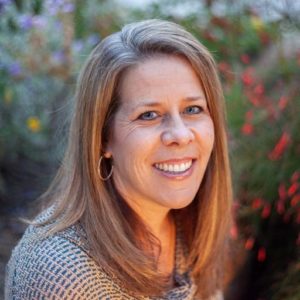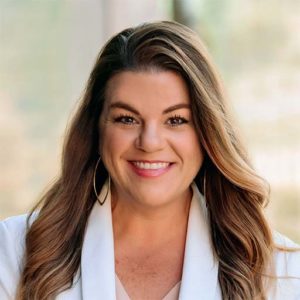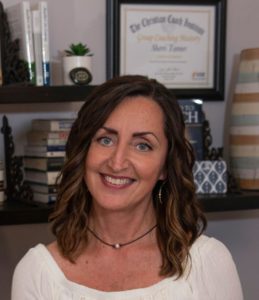What is Coaching?
A relationship-based coaching approach looks deeper into the things that keep us stuck. Those negative events, painful emotions, unhealthy relationships, and poor coping mechanisms affect our ability to move forward. Coaching can give us the courage to step out of that “stuck” place to live life fully. Each woman’s journey is not immune to difficulties and hurts, so we must learn to not just face them but grow through them as well. Avoiding life’s difficulties or ignoring its pain simply creates more problems that we must work through later. In every difficulty we face, we can meet it, work through it, and use it to build a life that thrives, not just survives. Instead of going through life burdened with a backpack full of rocks, we can enjoy a buoyant life of acceptance and personal growth. However, we must choose to embrace the resilient people we can be in order to experience true freedom and restoration.
Coaching is a one-to-one relationship that supports growth in self-awareness, identifies personal strengths, and stretches you to pursue your healing journey with intentionality.
Coaching is encouraging, hope-filled, motivational and action-driven. It is about calling forth the intellect, brilliance, and creativity in you.
Coaching does...
- Honor you and your story.
- Provide clarity and insight into a world that often doesn’t make sense.
- Listen and provide space for wounds to be heard and healed.
- Validate experiences that have created barriers.
- Encourage acceptance of where you are.
- Give space to share feelings and thoughts.
- Focus on support toward things you can change.
- Motivate with a sense of self-care and empowerment.
- Take steps, with the help of a specialized coach, toward sustainable action.
- Provide additional readings and homework to further your progress.
Coaching does not...
- Assess or diagnose mental health or addiction.
- Find the answers for you.
- Provide a quick, 3-step guide to healing.
- Create an immediate fix to your marriage or relationship.
- Design a formula to fix someone else.
- Use the process to stay stuck.
A Coaching Word Picture
An easy way to view coaching is through a medical word picture. You experience a major car accident (discovery or relapse day). You are rushed into surgery. They need to get the bleeding to stop (initial support could look like a pastor, mentor, group, therapist). Days later (in our case sometimes weeks or months), you are still in the hospital. Your body is beginning to heal from the traumatic day (scabs appearing), and they decide to do another surgery to “fix” some other issues (therapist). Following surgery your body is beginning to heal well, but the muscles are still weak. You are referred to Physical Therapy (coaching). You are given an individual who assesses the injury, understands the workings of a healthy body, and helps you construct a plan of recovery. You both work to come up with exercises that will improve and strengthen your body and heart, which leads to deeper healing.
What can you expect?
We will work together to help you assess where you are now and where you would like to be. Together, we will work to bridge that gap. We will pray together – probably cry together – and run hard after Jesus together.
We believe accountability is just as important for you as it is for the addict. Coaching is a wonderful place to find accountability and keep moving toward healing as you learn new tools to navigate your journey.
Coaching is not the first step in a woman’s healing journey, but rather a step that is followed by group participation or therapy. To know if coaching is the next right step for you, please reach out via our contact form.
To book a session or for questions regarding coaching, please email support@hoperedefined.org.
Still Not Sure?
Here are a few questions to consider for coaching.
- Are you struggling to identify the places you are feeling stuck in your recovery?
- Have you attempted to create boundaries but struggle to hold to them?
- Are you needing space to brainstorm or think through future needs, decisions, events?
- Do you need support to design and navigate support plans like therapeutic separation, rebuilding trust, or relapse/slip plans?
- Are you having a hard time seeing God in the middle of the mess? Do you need support shifting your eyes?
Meet Our Coaches

Lyschel Burket, PCC, FRLC, APSAT- CPC, ADOH, has been working with women since 2008 as they take steps toward healing and their pursuit of God. She has facilitated support groups specific to partners since 2013 both locally in Knoxville, TN and online through Vicki Tiede Ministries. Lyschel has coached with women navigating their betrayal story since 2017. She specializes in Full Therapeutic Disclosure support/coaching.
She is the Lead Hope Caster and Founder of Hope Redefined. She desires to be a part of something so much bigger than herself as she continues to expand the reach of support for women who are facing similar things to her own recovery story. She and her husband, Garren, live in Knoxville, TN with their 5 kids. Lyschel and Garren have been on the road of recovery since 2006.
Read More →
Sharon Jackson is an APSATS trained Professional Life Coach. Sharon has a heart to support and walk with women impacted by infidelity and betrayal trauma. She has led betrayal partner groups since 2014 and is A Door of Hope Certified Peer Facilitator-ADOH (C-SASI-Christian Sex Addiction Specialists International). Through the coaching process, she was able to begin to find safety, validation and encouragement that allowed her to take the next steps of healing. In the middle of “messy”, having a betrayal coach allowed her to reconnect with God and to find security in knowing that He was still there walking alongside her. “God has always been my anchor during life storms. Her faith and love of Jesus allowed for peace in understanding that regardless of the outcome of the marriage, she would not only survive but thrive. She continues to be intentional on doing the work of recovery with her husband of 36 years.
God is leading her as a Christian coach to be a part of the next wave of helping women become “unstuck” and move forward with hope, perseverance, and abundant living in the aftermath of sexual betrayal. Life coaching can help betrayed women to look forward to a future where they hold the key to their healing choices.
Sharon's Personal Mission: Proverbs 20:5: “The purposes of a person’s heart are deep waters, but one who has understanding draws them out.” Your healing lies within you, and I will walk with you as we travel along this unintended journey.”
Her favorite hobbies are spending time with God, walking in the awe of beautiful nature, listening to worship music, vacations, and regular massages.
Read More →
Shawna Meek, CPC, PCC, APSATS-CPC, truly understands the roots of attachment distress in a marriage, even after addiction sobriety. Her personal story began in 2000, and after many years of mentoring women, she knew the Lord was calling her to an extensive coaching training program and ultimately APSATS as a certified partner coach. She is passionate about supporting women as they face specific challenges on this journey, including boundaries during separation and divorce, abuse and gaslighting, therapeutic disclosure preparation, intimacy anorexia and deprivation, and emotional and sexual reintegration.
Shawna and her husband, Kevin, live in Gilbert, Arizona, and have a story of God’s incredible redemption following separation, divorce, re-marriage and betrayal. They have four amazing kiddos ranging from elementary school age to a young adult in college – both biological and adopted. She knows the Lord has a mighty plan in all our stories, and no matter the outcome, He will bring hope even when it seems there is no hope.
Read More →
Alison Ruhter, Certified Professional Coach, APSATS-Candidate, passionate about serving others and supporting woman in their healing journey after the devastation of sexual betrayal. A partner herself, she has experienced betrayal trauma and has walked the rocky road of separation. With her personal and professional experience, she fully understands the deep pain and confusion that sexual betrayal brings.
Alison loves the Lord and seeks Him in her daily life. He has been her great comforter and provider in her own healing journey. Over a decade ago, the Holy Spirit spoke to Alison and said He would use her story for His good and not waste the deep pain she was experiencing. It didn’t make sense at that time, but she knew God would be faithful. He has opened doors and provided a clear path of becoming a professional coach. She is now dedicated to joyfully serving other women with great compassion and empathy.
Alison was married for 20 years and has three children. She has had the privilege to have lived on the east coast, upper mid west and west coast. She now resides in the great state of Texas in the northern suburbs of Dallas. In her free time, Alison leads a betrayal group at her church and delights in worshiping the Lord through playing the violin with the worship team. She is both a dog and cat lover, a Cowboy’s football fan, loves to kayak and is refreshened by a cold glass of unsweetened iced tea on a hot Texas day.
Read More →
Sherri Tanner, Certified Professional Coach, Group Mastery Coach, APSATS trained, passionate to help women find hope and healing, as she has also walked through betrayal trauma. She understands that betrayal trauma can rock our world, fracture our faith and leave us wondering whom we can trust. She strongly supports women to find hope in the aftermath and to assure them they are not alone.
Coach Sherri is currently married to her husband of 32 years, after walking through disclosure and recovery of sexual addiction and betrayal. She was previously married and divorced to her former husband, leaving that abusive relationship after three years. She has two children and three grandchildren whom she adores. Her True North is the Lord Jesus Christ.
Read More →
